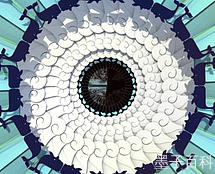
The English translation for Mother’s Day is Mothers Day, a holiday to express gratitude to mothers. On this day, mothers usually receive gifts, and carnations are considered as the flower dedicated to mothers. In China, the mother flower is the calla lily, also known as the forget-me-not.
The historical significance of Mother’s Day lies in the profound ethical civilization of the Chinese nation, which places great emphasis on filial piety and compassion. Mothers have given birth to many great and influential maternal figures. It is necessary for us to have our own Chinese Mother’s Day, one that is filled with the excellent cultural connotations and national spirit of the Chinese nation, instead of the imported Mother’s Day. This is necessary for the great rejuvenation of the Chinese nation.
Looking back at the history of the Chinese nation, the mother of Mencius, Lady Ma, is the most prominent exemplary mother figure in Chinese culture. After Mencius lost his father at the age of three, she took on the responsibility of educating him. The stories of “Three Relocations of Mencius’ Mother” and “Breaking the Loom to Teach the Child” have been passed down for more than two thousand years. Lady Ma paid attention to both the external environment of her child’s upbringing and the internal rules of learning. She ultimately raised a remarkable child and became a model mother in education. She is praised as the “Mother who educated one person” and still serves as an inspiration in modern times. Lady Ma can be regarded as the representative figure for Chinese Mother’s Day, highlighting the greatness of mothers and their love, inspiring generations of mothers, and stimulating filial piety and love in their children.













